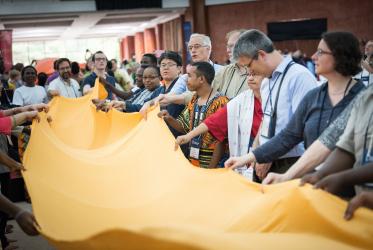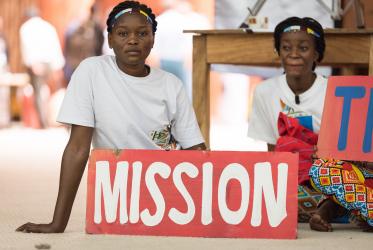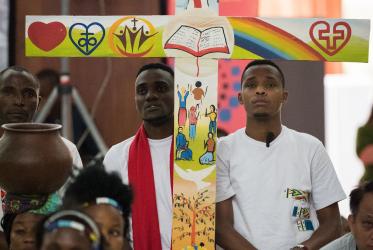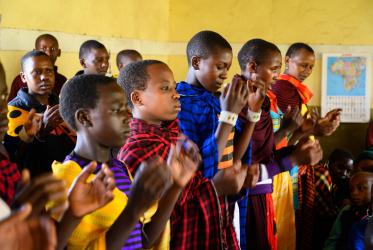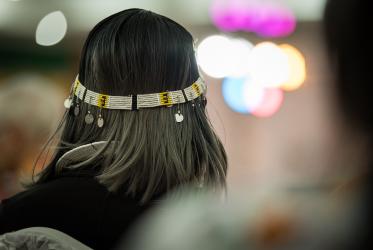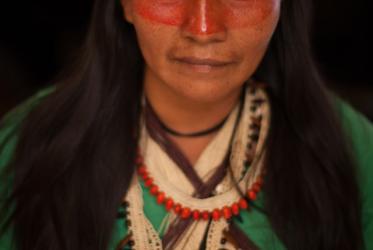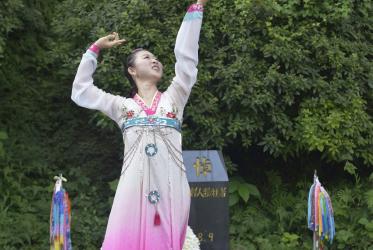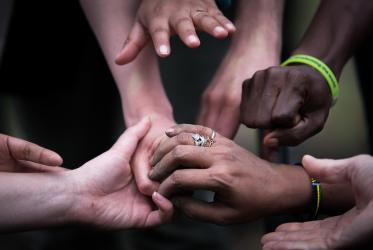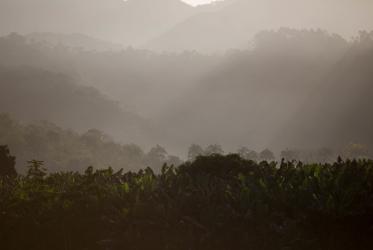Displaying 1 - 20 of 44
WCC honors world’s indigenous communities
07 August 2020
Plans for 11th WCC Assembly build excitement across the globe
18 February 2020
Indigenous youth to convene pilgrimage in Japan
07 September 2019
"Diversity" documentary reflects on maze of self-identity in Canada
27 September 2018
Indigenous youth want their voices heard
08 March 2018
Protect the Amazon, urges WCC statement
22 November 2017



